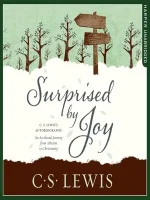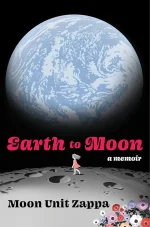- Joined
- Apr 18, 2020
- Messages
- 10,885
- Reaction score
- 10,301
- Location
- North East
- Gender
- Male
- Political Leaning
- Independent
I enjoy your "book reports". I already read one book about the Israeli revenge for the killings at the Olympics. I do not recall if it is this one, but your précis makes me want to read (or reread) this one.I just finished reading Vengeance: The True Story of an Israeli Counter-Terrorist Team by George Jonas. As usual I have my quibbles, these somewhat more profound than usual. The book, about the Israeli government and intelligence efforts to kill those responsible for the 1972 Olympic massacre, is in the "non-fiction" category but just barely. A lot of the dialogue is necessarily invented. The protagonist of Vengeance, one ex-Mossad agent "Avner" is admittedly an invented person. Obviously, a Mossad agent with a price on his head, both my Arab terrorists and by some elements of the Mossad and his loose supervisors, was not going to be named in a book about him. More to the point though, much of the dialogue had to have been imagined or filled in, unless "Avner" had a superhuman memory. This invention of dialogue is necessary feature of many books about war, espionage or disaster. Can one, for example, reproduce the discussions on board The Titanic or the boat that sank in The Perfect Storm? Could Gordon Lightfoot known that the captain said "fellows it's been good to know you."
That being said, however, it is a historical fact that most or all of the 1972 Olympics butchers met violent ends. It is known, from a study of current events, that strange things happen to terrorists who cross Israel. With those caveats in mind, I recommend reading Vengeance.

This reminded me of what I had learned from Well-Schooled in Murder by Barbara George, one of a series of detective stories she wrote about a couple of British detectives. This one was centered around the boys school where one of the detectives, Inspector Thomas Lynley, who is an Earl and who attended the school, has ancient ties. The brutality of which you wrote so vividly is on display in this wonderful detective novel.View attachment 67538363
I'm reading Surprised by Joy, an autobiography by C.S. Lewis
Or it's an autobiography of sorts. It is largely C.S. Lewis' retelling of his life through the lens of his journey into, out of and then back into his Christian faith.
The thing that surprises me the most about this book, and I should point out that I haven't finished the boo yet, is the brutal honesty of it. I am to Lewis' experienced of his teen years on school and it is very much an eye opener to British culture, at least in the years before WWI. I would assume, like most countries in Europe, culture was dramatically changed following the first world war, and then again in WWII.
What I find most interesting at this stage in Lewis' life, is his retelling of how the hierarchies of students fell within boarding schools. As described, there were the "Bloods" who ruled the school, not to be mistaken with hereditary, "bloods" were what might be described in American schools as "jocks", they were the physically gifted, impeccably dressed and handsome... or some contribution of the three. The bloods were often brutal to their perceived inferiors and given free reign to brutalize the rest of the school, for the most part, as a way of toughening up the boys.
Most interesting is that there is little spoken, other than personally by Lewis, at this stage of his life, of the boys experiences with young ladies. For Lewis women were only ogled in his teens because their lives were largely separate from them, beyond the odd teacher, such as a ballet instructor brought in to teach boys grace, who would be Lewis' first real source of fantasy. What ended up dominating the sexual lives of the "bloods" in school were the "tarts" who were lower rung students who were largely, it seems, coerced into gay relationships with "bloods" as a matter of power.
As Lewis put it, the rules for the students in these schools were so contradictory and pervasive that it was almost impossible to obey one rule without breaking another one, and the "bloods" who were largely left to police the rules themselves, determining infringement and punishment on their own, that if/when a targeted boy refused to become a tart for the bloods, they would find themselves in an endless violation of school rules and brutal punishment until they "voluntarily" turned to being a "tart" since most tarts held some level of power by proxy to their connection to various "bloods".
In light of this it was needlessly jarring to my modern American ears to hear Lewis constant use of the term for those lowly students who were neither "bloods" nor "tarts", who suffered less but more dependably then those boys targeted to be "tarts". For many students, they was simply "fags".
The "bloods" and "tarts" dynamic of pre-War British boys schools seemed not that dissimilar to prison in the the United States. It was quite the eye opener.
Infinity Net: The Autobiography of Yayoi Kusama. I have loved her art for years and met her once in Hong Kong, so perhaps it is time I learned more of the person who is regarded as one of the greatest artists of our time.What Are You Reading Right Now?
What I am reading is a transcript from the Charlie Rose show; an hour-long interview with David Kilcullen.




I just finished reading Demain by Hermann Hesse. I felt some trepidation before reading this book. Back in the summer of 1973, I was on a teen tour called Trails West. one of my friends there, Jonathan, was a stunningly brilliant, straight-A Honor Student. I learned this book from his discussions with other people on the trip. I was sure that the book was above my intellectual level. I bought the book during approximately summer of 1980, but did not touch it until now. When I was randomly searching for my next book, I put my hands on it and decided “why not." I am rather pleased with myself that I did. Most “reviewers” on Goodreads classify this book as young adult. I find it to be deeply philosophical, and can be read at many levels. There are discussions of goodwill. The author seems to land quite solidly on both sides of the fence on whether or not people have free will.Demain by Hermann Hesse said:But where we have given of our love and respect not from habit but of our own free will, where we have been disciples and friends out of our inmost hearts, it is a bitter and horrible moment when we suddenly recognize that the current within us wants to pull us away from what ls dearest to us. Then every thought that rejects the friend and mentor turns in our own hearts like a poisoned barb, then each blow struck in defense flies back into one's own face, the words "disloyalty" and "ingratitude" strike the person who feels he was morally sound like catcalls and stigma, and the frightened heart flees timidly back to the charmed valleys of childhood virtues, unable to believe that this break, too, must be made, this bond also broken.

You are such a good boy. I am a slacker. I am reading a cozy mystery about about the English countryside that also has dragons. It's entitled, Manor of Life and Death (how clever). A day or so ago I finished the highly edifying Blood Lines by Nelson DeMille and Alex DeMille. My husband is coming up for Christmas from Virginia. I will have to hide my reading matter. Kudos to you for continuing to pursue the subjects you love and not getting lazy.View attachment 67547453
This novel is a masterpiece. It’s about Octavius, his war with Mark Anthony and becoming emperor. A story familiar to anyone interested in the period but just brilliantly told though a series of letters by the various characters from Cicero to Cleopatra. John Williams also a wrote well regarded book called Stoner. Will definitely pick it up.
I remember that.Guess it’s time to re-read The Plot Agsinst America, by Phillip Roth.

The Plot Against America - Wikipedia
en.m.wikipedia.org
You are such a good boy. I am a slacker. I am reading a cozy mystery about about the English countryside that also has dragons. It's entitled, Manor of Life and Death (how clever). A day or so ago I finished the highly edifying Blood Lines by Nelson DeMille and Alex DeMille. My husband is coming up for Christmas from Virginia. I will have to hide my reading matter. Kudos to you for continuing to pursue the subjects you love and not getting lazy.
